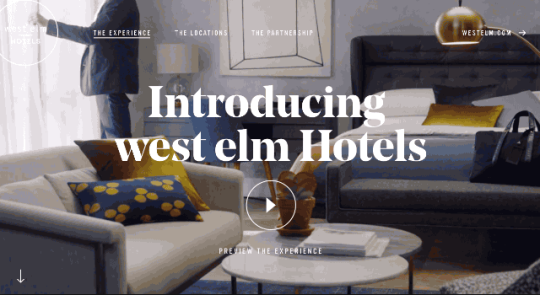
As retailers attempt to differentiate their offerings from competitors’, they sometimes go to great lengths to try out new ideas that might attract consumers. Furniture retailer West Elm recently announced it would launch its own boutique hotels, in order to sustain its growth without running the risk of opening too many stores.
Through the new venture, West Elm will design, furnish and market the hotels, and guests will have the opportunity to purchase all of the furniture and home décor within the hotels online. West Elm is not the first to bring hotel furnishings and accessories to the public. Marriott Hotels sells its branded products via an e-Commerce site, where consumers can purchase the hotel chain’s bedding and robes.
The RTP team discusses whether this strategy of diversifying beyond physical retail will work for West Elm and other retailers, and whether these merchants should be focusing on brand extensions or sticking to what they know.
Debbie Hauss, Editor-in-Chief: Today’s retail environment is all about experience and relationships. That said, I believe it’s a smart move for retailers to diversify in order to secure long-term loyal customers. Moleskine (the notebook company) recently added cafés and events to the mix, with the goal of engaging its artistic and writer-based target demographic with experiences that resonate with them. One key to this strategy is to make sure the new experience is a good fit with the brand. West Elm is a lifestyle brand, so it makes sense to engage in the hotel business. Of course, the bottom line is relevant here. If the foray into a non-retail venture fails to deliver revenue, then the experiment didn’t work. Maybe test the concept in a pop-up location first? We’ve seen and reported on a number of recent successful pop-up strategies.
Adam Blair, Executive Editor: Today’s retailers need that little something “extra” to stand out in a crowded marketplace, and in many cases that’s been taking the form of experiential retail. Staying at a boutique hotel could almost be the dictionary definition of “experiential,” so it seems as if West Elm has found a clever way to tie together its products, services and brand. As the Wall Street Journal piece hints, however, the challenge for West Elm will be to subtly indicate which items in the rooms are available for purchase, without making people feel as if they are spending the night in a furniture showroom. Hospitality is a tough business to make a profit in — almost as tough as retail — so ensuring the hotels actually pull their weight in boosting product sales will be essential to the success of the whole enterprise.
David DeZuzio, Managing Editor: We’ve had plenty of examples of pop-up and experiential stores, but this is without a doubt a fantastic idea for furniture retailers. How many times have consumers been on the fence about a certain piece of furniture, wishing that they had the night to essentially “sleep on it”? It is now possible for consumers to experience a piece of furniture for an amount of time greater than a quick in-store visit and see if they actually can’t live without it. I don’t think this is a distraction from brick-and-mortar because the key is giving the customer a good experience in every channel. Ultimately, this shows that West Elm has confidence in its products, and that should translate to an increase in conversions and brand loyalty. As a side note, having never stolen a towel from a hotel, I feel much more at ease buying the same (unused) towel from a hotelier’s e-Commerce site. All-in-all, these are great moves that should pay off for these retailers.
Klaudia Tirico, Associate Editor: I love West Elm’s new hotel venture and wonder what took a home furnishings retailer so long to think of the idea. Not only does West Elm give consumers the opportunity to truly test its products, but it also shows them how to style the products in their own home — especially because print catalogs are so scarce these days. I think this type of experiential retail has to become a norm for most retailers in order to stand out. But obviously launching a chain of hotels won’t work for all. It’s important for retailers to understand their customers and realize what they want before jumping into ventures like this. And it doesn’t necessarily have to go as far as opening a hotel. One of my favorite examples of experiential retail is the Urban Outfitters in Herald Square, NYC, which in my opinion is a Mecca of all things cool. The store is huge and features separate sections for men, women, beauty, home, and vintage items. But it is also home to a beauty salon, shop-in-shop partnerships with independent brands, and a café/restaurant. I never want to leave! It’s definitely an experience all retailers should strive for, especially when their target demographics are Millennials and Gen Z.
Glenn Taylor, Associate Editor: On the surface, this appears to pretty big risk on West Elm’s part. Extending a retail environment through experiences is one thing, but pouring money into the hospitality business carries plenty of expenses. If they can book enough consumers well in advance to stay at the hotels, then obviously the move would be considered a success, but I feel leaving one very costly endeavor for another almost defeats the purpose of leaving it in the first place. There are plenty of other ways to go about the experiential route without having to take this risk, whether that means tying services within their stores or saving store space to test out the products. Casper has done a good job of this by giving its consumers a chance to test out mattresses within its showrooms.






